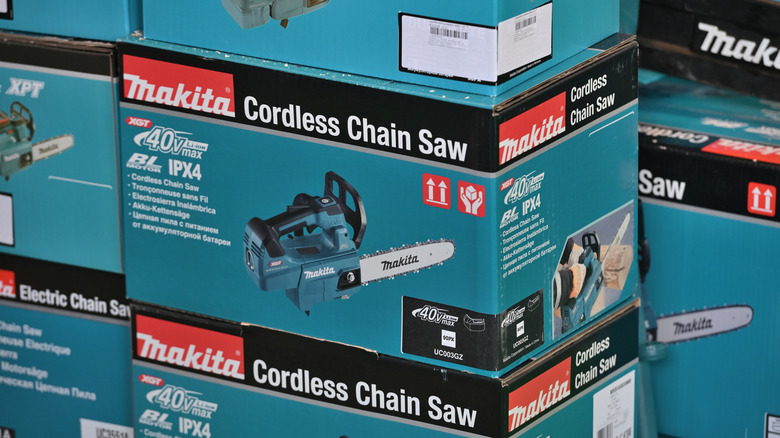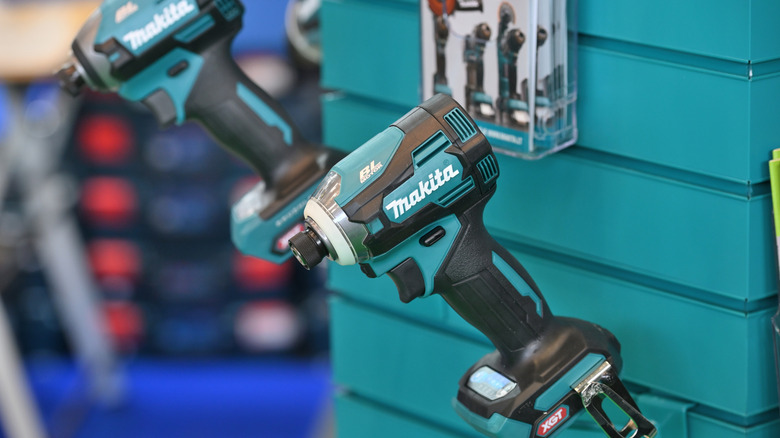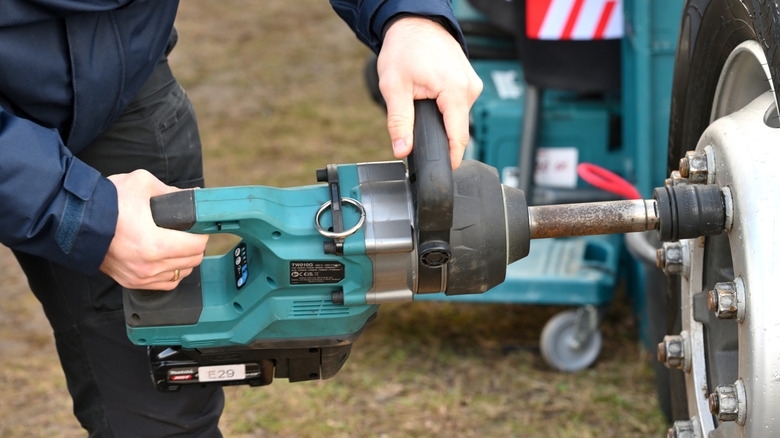Where Are Makita's Power Tools Made, And Who Owns The Company Today?
There are a lot of major power tool brands lining the shelves of our local hardware stores, but few have so long and storied a history as Makita. The company is over 100 years old, dating all the way back to 1915 when it was founded by Masoburo Makita as an electric motor sales and repair company based in Nagoya City. It wasn't until 1958 that Makita turned toward power tools, becoming the first manufacturer in Japan to produce a portable electric planer. It was this successful launch that led the company to focus its attention on tool production until it eventually became one of the most well-known power tool manufacturers in the world, with a distribution network that now spans over 40 countries across the globe.
A lot can change in a century, however, and it isn't uncommon for brands to evolve, relocate, and even change ownership over decades. Power tool brands are no exception. With that in mind, fans of Makita's products might be curious to learn a bit more about how the company operates today. They may want to know a bit more about where the Makita power tools that we find in stores are being manufactured and who currently owns the company.
Where are Makita's power tools made today?
Makita's power tools are currently manufactured in plants located in eight different countries: Japan, China, Romania, Thailand, the United Kingdom, Brazil, the United States, and Germany.
The company has branch offices in 21 cities in Japan and 129 sales offices, but it's the Okazaki Mother Plant that has been the single biggest source of domestic manufacturing for the company since it was established in 1970. In fact, it continues to be Makita's biggest plant in Japan, despite the fact that it now only accounts for roughly 10% of the company's global product manufacturing. Its production focus has largely shifted toward advanced robotics, precision manufacturing, research, and development. So, while only a small portion of Makita's tools are physically made and assembled in Okazaki, it's safe to say that a large portion of Makita's designs and proprietary technologies were conceived here.
That said, the majority of Makita's products that are built today (approximately 60%) are made in the Jiangsu Mother Plant in China, which has been in operation since 1995. This facility is primarily focused on efficient mass production of parts, so you'll likely find that a large portion of Makita's products are made here and that even those that are assembled at other plants include components that were first prepared in this facility.
The other ~30% of production takes place in the other countries listed above. The facility in Hamburg, Germany, specializes in making outdoor power equipment, but most of the other facilities aren't targeted at a specific type of product. Those in the U.S., U.K., Brazil, Thailand, and Romania are all dedicated to general production for local markets. This helps Makita minimize its transportation and import costs.
Who currently owns Makita power tools?
A lot of power tool manufacturers are owned by parent companies. Ryobi and Milwaukee are both owned by Techtronic Industries, DeWalt and Craftsman are owned by Stanley Black and Decker, and Dremel is owned by Bosch. But you might be surprised to learn that Makita is one of the few companies that is not part of a larger corporate umbrella.
The company's original name was Makita Electric Works, Inc., back when it was privately owned, but the trade name was officially changed to Makita Electric Works, Ltd. in May 1962, just three months before the company went public and was listed in the second section of the Nagoya Stock Exchange. In 1968, it was also listed in the second section of the Tokyo and Osaka Stock Exchanges and then bumped up to the first section in all three in 1970. Several subsidiary entities have popped up in the years since. Makita U.S.A. Inc. was established in the U.S. in 1970, Makita S.A. was established in France in 1971, and Makita Electric (U.K.) Ltd. was established in 1972, as well as other corporate entities in Australia, the Netherlands, Canada, Germany and dozens of other countries, but all of these are owned by Makita. The company once again changed its name to Makita Corporation in 1991, but has remained and continues to remain a publicly traded entity.


